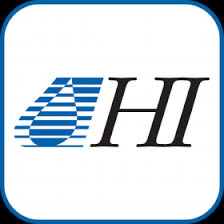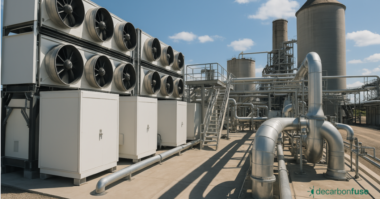Pumping systems account for a significant portion of a facility’s energy use in many industries. In the majority of pumping systems, the energy added to the working fluid by the pump is much greater than required by the process.
To address the need for greater pump efficiency, the Hydraulic Institute (HI) over the last six years has created a Pump System Optimization (PSO) Education and Training Program that instructs engineers, operations, facilities, maintenance, and management personnel in operating pump systems more efficiently and to better understand how a pump system optimization process identifies problematic areas that represent the greatest opportunities for energy savings improvement.
Building on this highly successful PSO educational program that helps participants of different industries achieve energy efficiency savings of 20% to 40%, HI is now developing a broader Pump Systems Assessment Certification Programs with two different paths.
Assessments are necessary to identify and quantify opportunities for reducing pump system energy consumption as well as improving pump reliability and process control. While a market-based need exists for defining and establishing the qualifications of individuals who conduct pump systems assessments or audits, no U.S. or international credentialing process exists to certify those individuals.
End-users, utilities and energy efficiency organizations from the pump industry on a global basis have indicated an interest to HI for qualified auditors/assessors. The PSAP Master Certification will provide a method to assess the credentials and capabilities of individuals who do pump systems assessments and evaluations based on a rigorous testing protocol.
Qualified individuals will contribute to decreasing energy consumption of pumping systems and, as a consequence, help increase productivity and profitability of end-user corporations, increase the reliability of pumping systems and decrease the corporate carbon footprint associated with pumping systems.
The certification and examination processes within the PSAP will be developed within the framework of ISO 500001 Energy Management, ISO 500002 Energy Audit and ISO 500003 Energy Management System Audits and Auditor Competency as well as ISO/ASME 14414 on Pump Systems Energy Assessment. The program will be based on ANSI/ISO/IEC 17024, 2012 Standard for Personnel Certification Programs.
“Most professionals now pursue certification as a means of demonstrating that they have the necessary knowledge, skills and abilities to perform their work,” explains Mike Pemberton, Chair of the examination committee which will develop the new certification standard. “Programs accredited under ISO/IEC 17024 will increase the potential for national and international reciprocity of certified individuals and personnel certification bodies.”
Developed with the help of technical pumping experts with field experience in performing audits, the pump system assessment programs will be segmented into two areas of proficiency:
- A one-time PSA Certificate will provide a thorough understanding all the critical components of conducting a Level I pump systems assessment based upon the ISO 14414 standard
- PSAP Master Certification offers a higher level of technical competency to implement Level II and III pump system assessment in the field. It will only be offered only to engineers, scientists, mathematician or technically-qualified profession with at least a B.S. degree from an accredited college or university and possessing five or more years of experience, some in direct management of pump systems. Certification must be renewed every three years to maintain competency.
With a pool of international certified Pump Systems Assessment Professionals, the industry can more confidently implement pump system audits and be assured that the benchmark of audit is at the highest level of quality, due to an ever-increasing pool of PSA & PSAP qualified professionals. The end results will lead to improved pump system efficiency and decreased energy usage through retrofits and/or replacement of inefficient components within pump systems.
For more information: Mark Sullivan, Director, Education and Marketing, Hydraulic Institute, email: msullivan@pumps.org or call 973-349-5329




